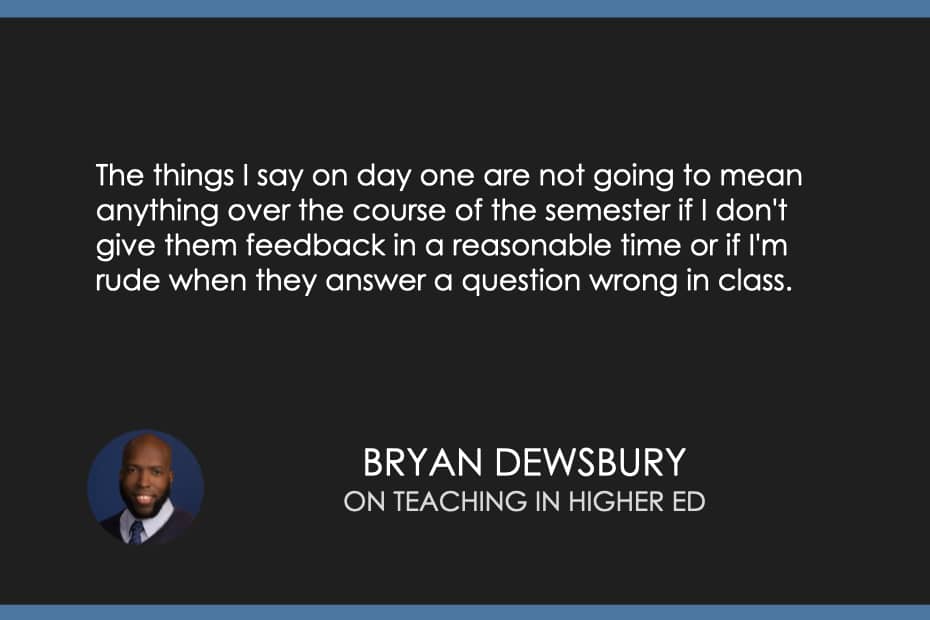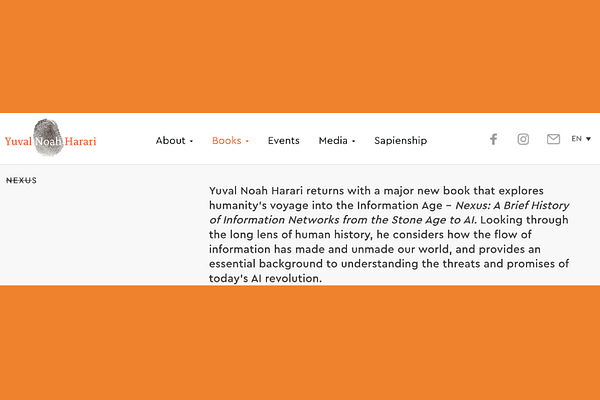Podcast (tihe_podcast):
Play in new window | Download | Transcript
Subscribe: Apple Podcasts | Spotify | RSS | How do I listen to a podcast?
Bryan Dewsbury helps us explore what socially just teaching might look like across disciplines on episode 585 of the Teaching in Higher Ed podcast.
Quotes from the episode

I am not interested in being in a war with AI. I'm not trying to be a faculty detective to see who's using ChatGPT or not, I didn't sign up for that work.
-Bryan Dewsbury
I'm not your enemy. I'm not against you. I'm rooting for you every single day. I really mean that.
-Bryan Dewsbury
The things I say on day one are not going to mean anything over the course of the semester if I don't give them feedback in a reasonable time or if I'm rude when they answer a question wrong in class.
-Bryan Dewsbury
The way in which we can interact around this material doesn't have to be one that's dictatorial.
-Bryan Dewsbury
You don't have to be able to save the world, but you're obligated to try, right? And so the whole key behind that is in trying, you almost by definition achieve more.
-Bryan Dewsbury



